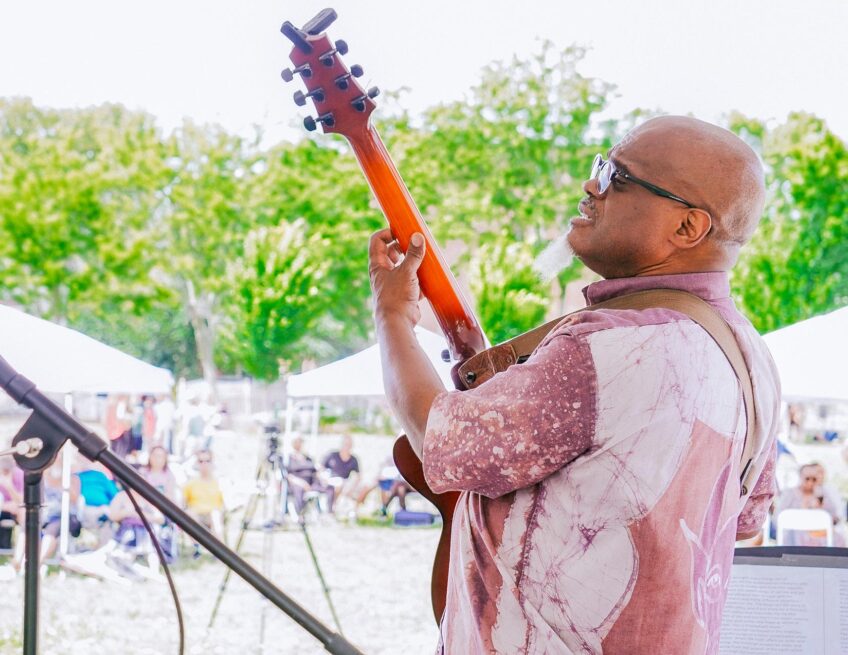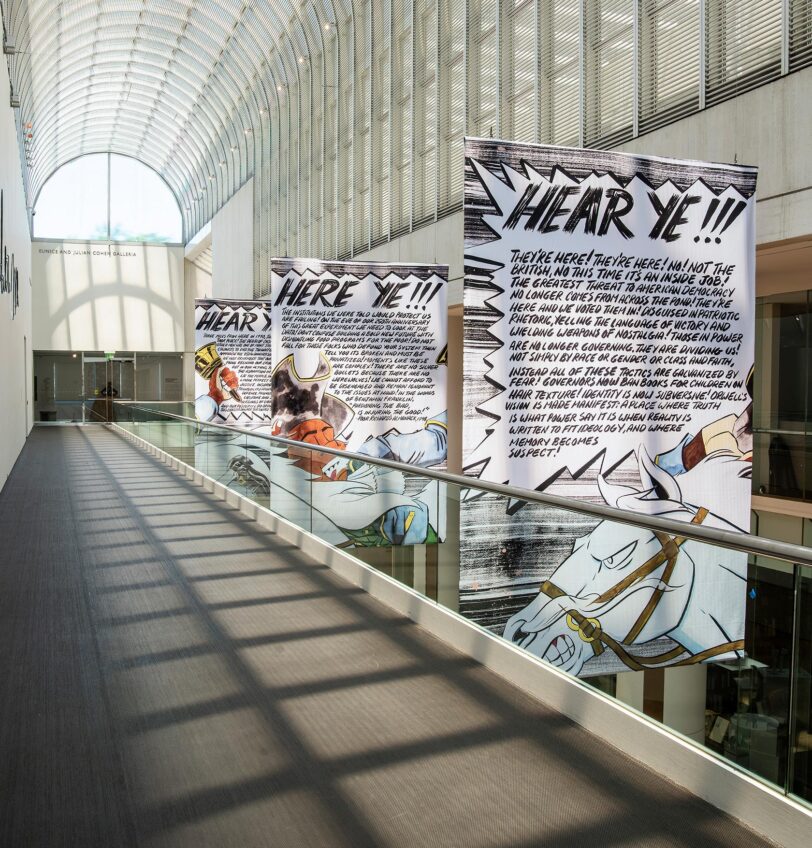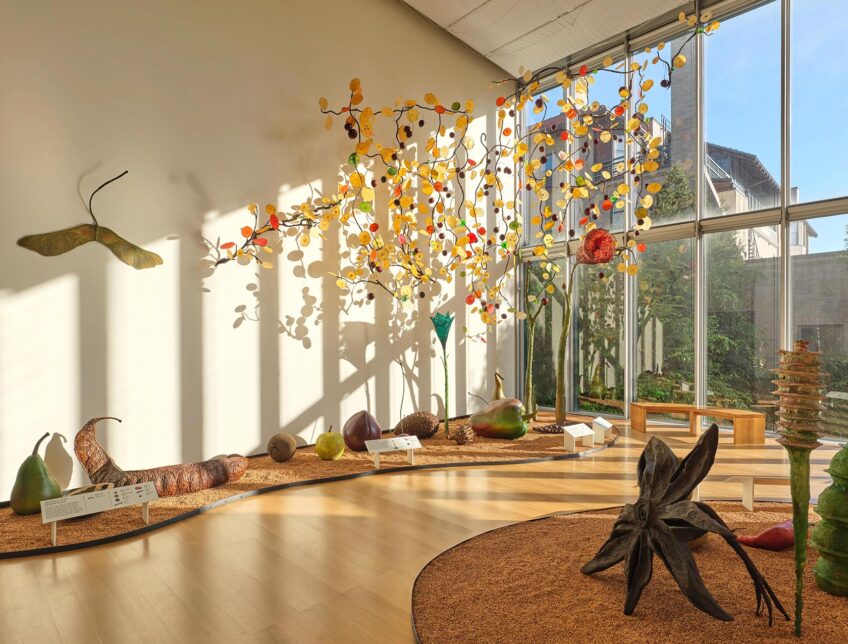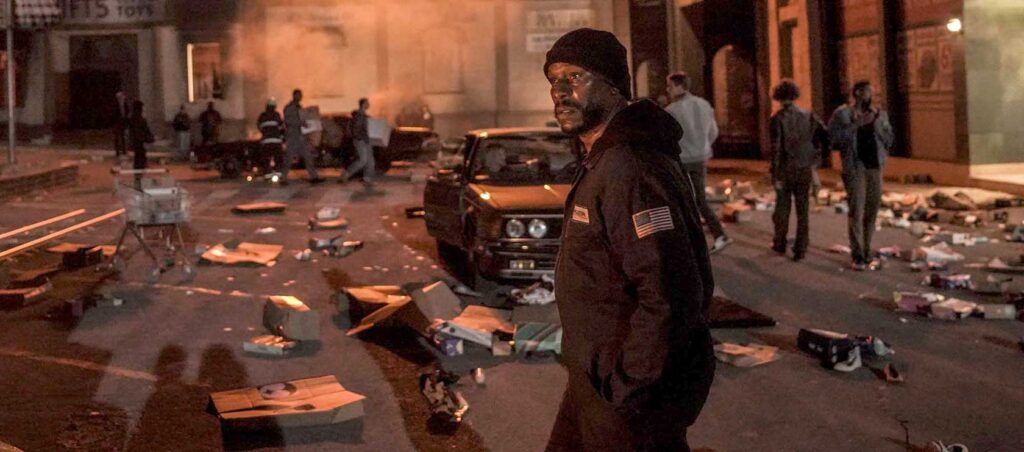
Banner Arts & Culture Sponsored by Cruz Companies
Thirty-two years ago in Los Angeles, four white police officers who brutally beat Rodney King were acquitted on April 29, 1992. This date marked the beginning of the six-day Los Angeles riots. It also marks the beginning of the film “1992” directed by Ariel Vromen and starring Tyrese Gibson, Christopher A’mmanuel, Scott Eastwood, and the late Ray Liotta in one of his last films. Gibson and rapper Snoop Dogg are executive producers.
“1992” follows ex-convict Mercer (Gibson) who is on parole and working at a metal factory while trying to rehabilitate his life to provide a good example for his teenaged son Antoine (A’mmanuel). Meanwhile, Antoine is grieving the untimely deaths of his mother and grandmother while trying to adjust to life with his strict father amid the backdrop of racial tension in Crenshaw. Across town, another father-son duo, Lowell (Liotta) and Riggin (Eastwood) plan to steal catalytic converters to extract platinum worth millions from the same factory at which Mercer works.
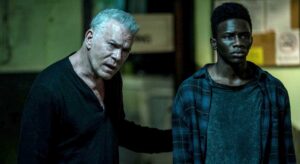
left) Ray Liotta as Lowell and Christopher A’mmanuel as Antoine in “1992” PHOTO: COURTESY OF LIONSGATE
During the riots, the two families come face-to-face, violence ensues, and the questions of justice and retribution loom in the furor-filled air.
At its core, “1992” is a hybrid between crime and social thriller. Filmed in Los Angeles in 2020 during the George Floyd protests and Black Lives Matter movement, the film is most effective at creating an atmosphere of racial tensions in the spring of 1992 following the Rodney King trial. The rage and disappointment that spilled over from the Rodney King verdict and onto the streets were already simmering from a previous court case a few weeks prior.
Korean shop owner Soon Ja Du killed 15-year-old Latasha Harlins over a container of orange juice that cost $1.79. Du was charged with voluntary manslaughter and faced a maximum sentence of 16 years in prison; she served no jail time. She was sentenced to 400 hours of community service, five years’ probation, a $500 fine and Harlins’ funeral costs.
In the film, Mercer’s brief encounter in a Korean-owned store in Crenshaw make a historical nod to these tensions. Mercer and Antoine’s eventual encounter with police is another nod to the past and present tensions Black men face with law enforcement and the justice system. Unlike the ubiquitous smartphone cameras of today, only parts of the tense and violent moments the film portrays are captured on security cameras and VCRs.
The film’s soundtrack is minimal, mostly consisting of interspersed archived news footage from the day of the verdict. Prescient warnings abound from characters remarking how ugly things were going to get outside when –– not if — the jury acquits the officers. It’s almost as if this has happened before. It has. Mercer tells Antoine about the 1965 Watts riots, which happened almost 30 years prior, like clockwork.
Although “1992” does a proper job of world-building and creating a lively backdrop for the action and the eventual showdown between good and evil, it is ultimately a formulaic crime thriller and doesn’t add much to the social thriller genre either.
Gibson’s acting has improved from his prior work and A’mmanuel is strong in his performance as a high school sophomore who finds himself in over his head. Liotta is consistent but one-dimensional as Lowell. It’s as if he’s resting on his typecast laurels of being a villain. Eastwood is at first unconvincing in his role as a man from the wrong side of the tracks. Yet, as his backstory unfolds, it is obvious that he and his cartoon-loving younger brother Dennis (played by Dylan Arnold) are paying for the sins of their father. As is Antoine.
“1992” will be released in theaters nationwide on Aug. 30.




